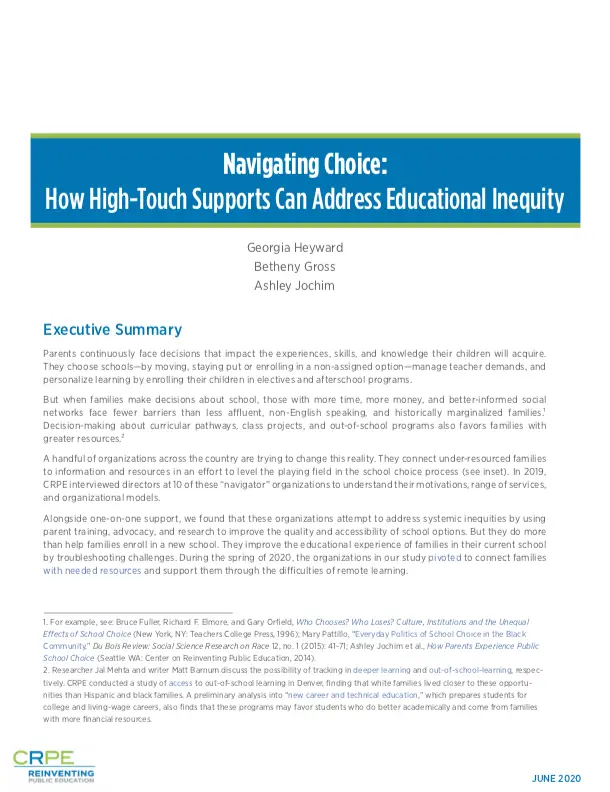Since 2016 the Center on Reinventing Public Education has sought to learn from the work of organizations with navigator services and understand its implications for the K–12 education system. In this brief, we present findings from a preliminary analysis of 10 such organizations.
The organizations profiled in this brief offer important lessons for addressing inequitable access in education choice. We found that all organizations engaged in three common activities to reach families furthest from opportunity and improve their access to a quality, good-fit education:
- Develop relationships with families furthest from opportunity.
- Help families make sense of their options.
- Address systemic inequities by supporting policy and practice to improve the quality of schools in a city.
Families face more choice than ever in education, in the form of district magnets, charter schools, new graduation pathways, curricular options, and out-of-school learning options. But supports for families have not kept pace, especially for those who historically have not had access to quality learning experiences. School navigation services are one option for changing this reality. We recommend that to offer these services, organizations must:
- Balance tradeoffs to reach families and sustain contact.
- Participate in conversations to address systemic inequities.
- Develop services or seek public funds to financially sustain themselves.






